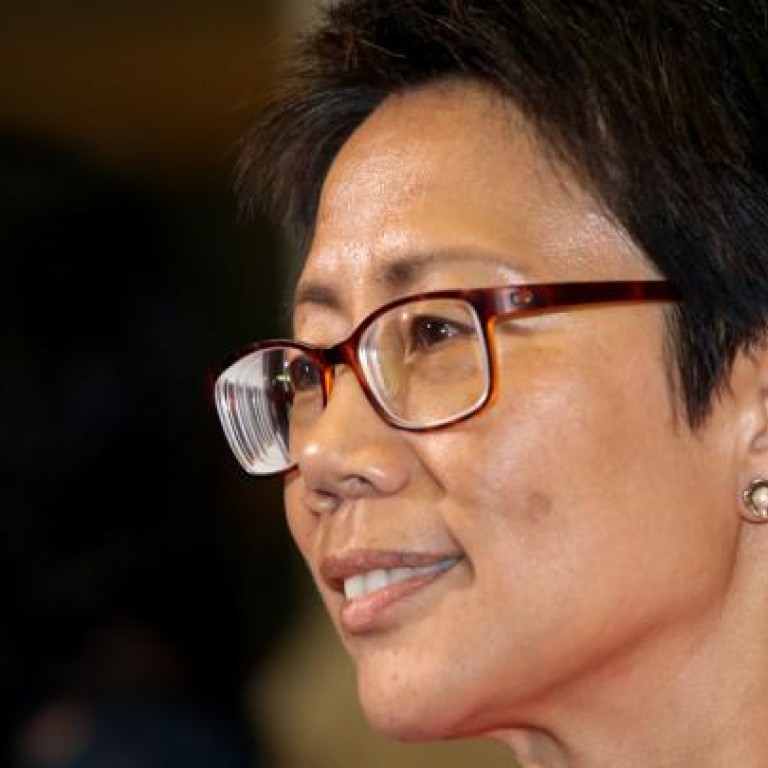
Women forced to take back seat in Legco election
Alice Wu wonders why female lawmakers had to step back in the Legco election so their male colleagues could take centre stage
Women just seem to be taking continuous beatings in this town. Eighteen years ago, then lawmaker Christine Loh Kung-wai fought for the inheritance rights of indigenous women of the New Territories and was threatened with rape. Today, single women are called "leftover women". To add insult to injury, Wong Sing-chi, a lawmaker who just lost his bid for re-election, asked during his campaign whether single women were making a lifestyle choice to be promiscuous.
Sure, we have come a long way since Loh was threatened for speaking out: over the past decade, women legislators here have even enjoyed far higher popularity ratings than their male counterparts.
But those tracks in politics have been all but wiped out in the Legislative Council election. As women, we have somehow been trained to be flattered whenever we hear this: behind every successful man is a woman. But never had I imagined this to be taken literally as an election campaign strategy.
It really is hard not to notice how women were relegated to taking a back seat. Two prominent examples were the Civic Party's Tanya Chan and Audrey Eu Yuet-mee. The Hong Kong Island lawmakers split up in this election to prop up two men - Chan Ka-lok in Hong Kong Island and Kwok Ka-ki in New Territories West - in a risky electoral gamble to maximise votes. The women's influence was used, to all intents and purposes, to "fluff up" the men's political careers.
And so, overnight, Hong Kong Island residents went from having four women representing them in the legislature to just two. It was huge price to pay to get the professor and the doctor into the legislature.
Chan Ka-lok had better think long and hard about the cost of getting him elected; as an academic, he should be familiar with a 2010 University of Chicago and Stanford University joint study, "The Jackie (and Jill) Robinson effect: Why do congresswomen outperform congressmen?" The study didn't find women to be smarter than men. What it found was that since it is more difficult for congresswomen to get elected, only the smartest and most ambitious succeed and, hence, they outperform the men.
The point is, women find it much harder to get elected. They are the ones who need the boost, not the men - but yet, in Hong Kong, we see the reverse.
Two other women who played a key role were People Power's Erica Yuen Mi-ming, who was instrumental in Raymond Chan Chi-chuen's successful bid, and Selina Chow Liang Shuk-yee, who stood behind James Tien Pei-chun of the Liberal Party. None of these women were elected.
It gets worse: in the traditional functional constituencies, we went from four women to 100 per cent testosterone.
I ask not for men to give up their seats for women, but only for us - whatever our political leanings - to be more gender conscious and not stand by when women are forced to take a back seat.
Politics is a tough world for both men and women. It's just a lot tougher for women. Take Loh again: named a magazine "hero of the environment" in 2007, she can only be an undersecretary.

